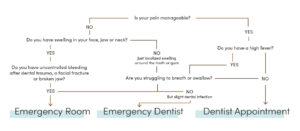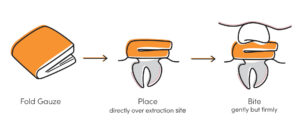¿Por qué me duelen los dientes por la noche? 5 posibles razones y lo que puede hacer ahora mismo

Revisado por Dr. Dennis Rollins, DDO |
Julio de 2025 - 6 min Leer
Reviewed By Dr. Dennis Rollins, DDO | Julio 2025 - 6 min Read
Los problemas dentales suelen doler más por la noche porque al estar tumbado aumenta el flujo sanguíneo a la cabeza, lo que incrementa la presión y la sensibilidad. Otras causas comunes son el aumento de la presión en los senos paranasales y el apretamiento inconsciente de la mandíbula y el rechinar de dientes.
Aunque la solución a largo plazo puede requerir una visita al dentista, hay medidas que puede tomar inmediatamente para obtener cierto alivio.
Qué hacer ahora mismo
Lo que no hay que hacer
Algunos remedios caseros pueden empeorar la situación.
- No coloques aspirinas ni analgésicos directamente sobre el diente o las encías afectados. Esto puede provocar quemaduras químicas.
- No hagas buches con alcohol, peróxido o lejía, ya que pueden dañar los tejidos e intensificar el dolor.
- No te enjuagues con agua caliente ni fría, porque las temperaturas extremas pueden provocar un choque en un nervio dental expuesto.
Y lo más importante, no ignores el problema. La causa del dolor no va a desaparecer por sí sola. Acudir al dentista lo antes posible te aliviará y evitará que las cosas empeoren y sean más caras.
5 posibles causas del dolor de muelas por la noche
Cambios en el flujo sanguíneo al tumbarse
- Por qué duele por la noche: Recostarse aumenta el flujo sanguíneo a la cabeza y la cara, lo que puede amplificar las molestias causadas por un problema subyacente, como una caries o una infección.
- Solución a largo plazo: Visita a un dentista para que trate la causa subyacente del dolor.
Cavidades profundas
- Por qué duele por la noche: Una caries que alcanza las capas internas de un diente puede irritar o exponer el nervio, provocando un dolor que puede ser más perceptible en momentos de tranquilidad.
- Solución a largo plazo: La restauración dental, como empastes, coronas o, en casos graves, una endodoncia, protegerá el nervio, restaurará la estructura del diente y detendrá el dolor.
Absceso dental
- Por qué duele por la noche: La infección provoca hinchazón y presión, que empeoran al tumbarse.
- Solución a largo plazo: El dentista drenará el absceso, tratará la infección con antibióticos si es necesario y restaurará o extraerá el diente afectado.
Presión sinusal
- Por qué duele por la noche: La congestión de los senos paranasales puede ejercer una presión dolorosa sobre los dientes superiores, que a menudo alcanza su punto álgido al tumbarse.
- Solución a largo plazo: Trate el problema subyacente de los senos paranasales con medicación de venta libre y segura, y controle las alergias según le recomiende su profesional sanitario. Si el problema persiste, acuda a un otorrinolaringólogo.
Rechinar los dientes (bruxismo)
- Por qué duele por la noche: Apretar o rechinar los dientes durante el sueño tensa los dientes y los músculos de la mandíbula, causando dolor. El bruxismo suele estar provocado por el estrés.
- Solución a largo plazo: Utiliza un protector nocturno a medida para amortiguar los dientes y redistribuir la presión del rechinar o apretar los dientes. Haz lo que puedas para reducir el estrés y visita a un dentista para tratar cualquier daño dental.

Consejos para controlar el bruxismo controlando el estrés
Reducir el apretamiento y rechinamiento inconscientes reduciendo el estrés es más fácil de decir que de hacer. A continuación te ofrecemos algunos métodos que merece la pena probar.
- Practicar técnicas de relajación - La respiración profunda, la meditación o la relajación muscular progresiva antes de acostarse pueden ayudar a calmar el sistema nervioso.
- Haga ejercicio regularmente - La actividad física reduce las hormonas del estrés y alivia la tensión muscular.
- Establezca una rutina para acostarse - Un conjunto coherente y relajante de acciones nocturnas ayuda a indicar al cuerpo que es hora de relajarse.
- Limitar la cafeína y el alcohol - Ambos pueden inhibir el sueño y aumentar el estrés.
- Estira y masajea suavemente la mandíbula - Hacer esto antes de dormir ayuda a liberar tensiones.
Cómo describir el dolor al dentista
Proporcionar a su dentista una descripción clara y detallada de sus síntomas le permitirá un diagnóstico más rápido y preciso, lo que conducirá a un tratamiento más eficaz. Antes de su cita, hágase las siguientes preguntas.
- ¿El dolor es agudo o sordo? ¿Es pulsátil o constante?
- ¿Me duele un diente o varios? ¿Se irradia a la mandíbula, el oído o la cabeza?
- ¿Se desencadena con alimentos o bebidas calientes, frías, dulces o ácidas? ¿Y al masticar o morder?
- ¿Le duele todas las noches o sólo de vez en cuando? ¿Duele durante el día?
- En una escala del 1 al 10, ¿cómo calificaría la intensidad de mi dolor?
- ¿Presento algún otro síntoma, como hinchazón, sensibilidad al tacto, mal sabor o fiebre?
Si le resulta útil, anote sus respuestas para asegurarse de que se lo comunica todo con claridad a su dentista.
El alivio está disponible
La buena noticia es que todas las causas de dolor de muelas nocturno enumeradas anteriormente son comunes, y cuatro de ellas pueden ser tratadas por un dentista. (La quinta, la presión en los senos paranasales, tiene soluciones diferentes, de las que ya hemos hablado). El único obstáculo para el alivio es esperar para concertar esa cita. Si usted, como muchos, sufre ansiedad ante un tratamiento dental, tenga en cuenta los siguientes consejos.
Elija la hora de la cita que más le convenga
Para muchos es mejor visitar al dentista a primera hora de la mañana, para poder hacerlo y evitar pasarse el día preocupándose por ello.
Aporte apoyo emocional
Acudir a la cita con un amigo o familiar de confianza puede ayudarle a mantener la calma.
Comunique su ansiedad al dentista
Puede hacerlo verbalmente o llevando una nota para presentarla al inicio de la cita. Los dentistas y sus equipos están formados para ayudar a los pacientes con ansiedad. Muchos ofrecen gas hilarante u otros métodos de sedación para ayudarle a relajarse durante el tratamiento.
Formule todas sus preguntas
Asegúrese de que entiende exactamente en qué consiste su cita.
Practicar la respiración profunda
Antes y durante el tratamiento, concéntrese en respirar lenta y completamente.
Centrarse en el alivio venidero
Piense en lo agradable que será dormir sin dolor de muelas y recuerde que visitar al dentista es la forma de conseguir ese objetivo.
Si necesita ayuda para encontrar un dentista en su zona, haga clic en aquí o llámenos al (888) 597-3896.
¿Necesitas ayuda para el dolor de muelas?
Información relacionada

¿Cuánto cuesta una visita al dentista sin seguro? Costes exactos
A continuación encontrará un desglose de los gastos de bolsillo típicos de los procedimientos dentales más comunes, junto con las razones que los justifican. Tenga en cuenta que estos costes pueden variar significativamente en función de su ubicación, la experiencia del dentista, los materiales utilizados y la complejidad del procedimiento.

¿Debe acudir a urgencias por dolor de muelas? Guía rápida
La conveniencia de acudir a urgencias por dolor de muelas depende de la gravedad del dolor y de los demás síntomas que experimentes. Sigue leyendo y te ayudaremos a decidir cómo aliviarte.

Cómo detener el sangrado después de la extracción del diente: Consejos fáciles para un alivio inmediato
Tras la extracción de un diente, es normal que se produzca una hemorragia en la zona, que suele remitir en 2-3 horas. Durante las primeras 24 horas suele seguir supurando suavemente (saliva rosada). A continuación encontrarás consejos para ayudar a detener la hemorragia y cómo diferenciar entre una recuperación normal y los signos que indican que debes llamar a tu dentista.
